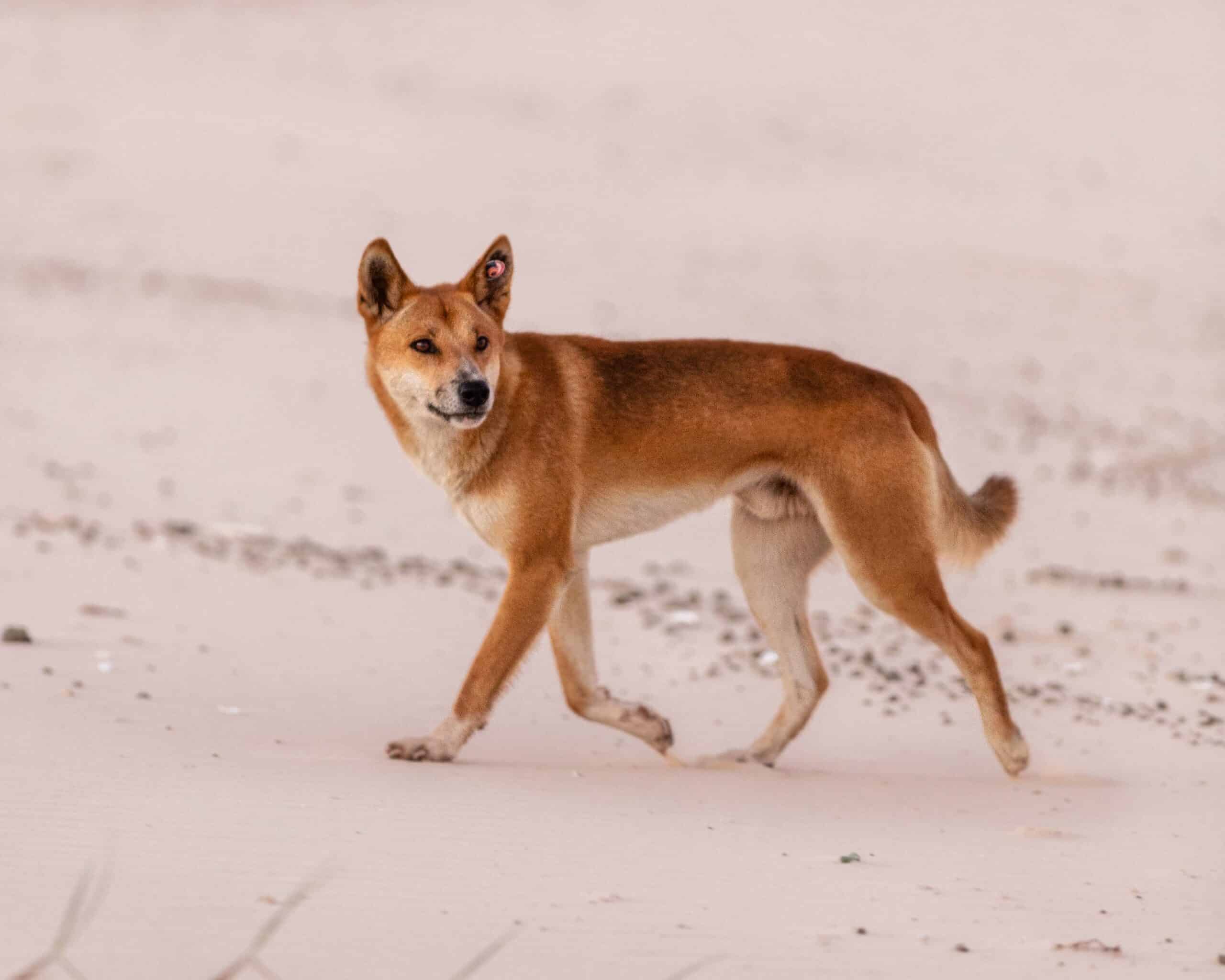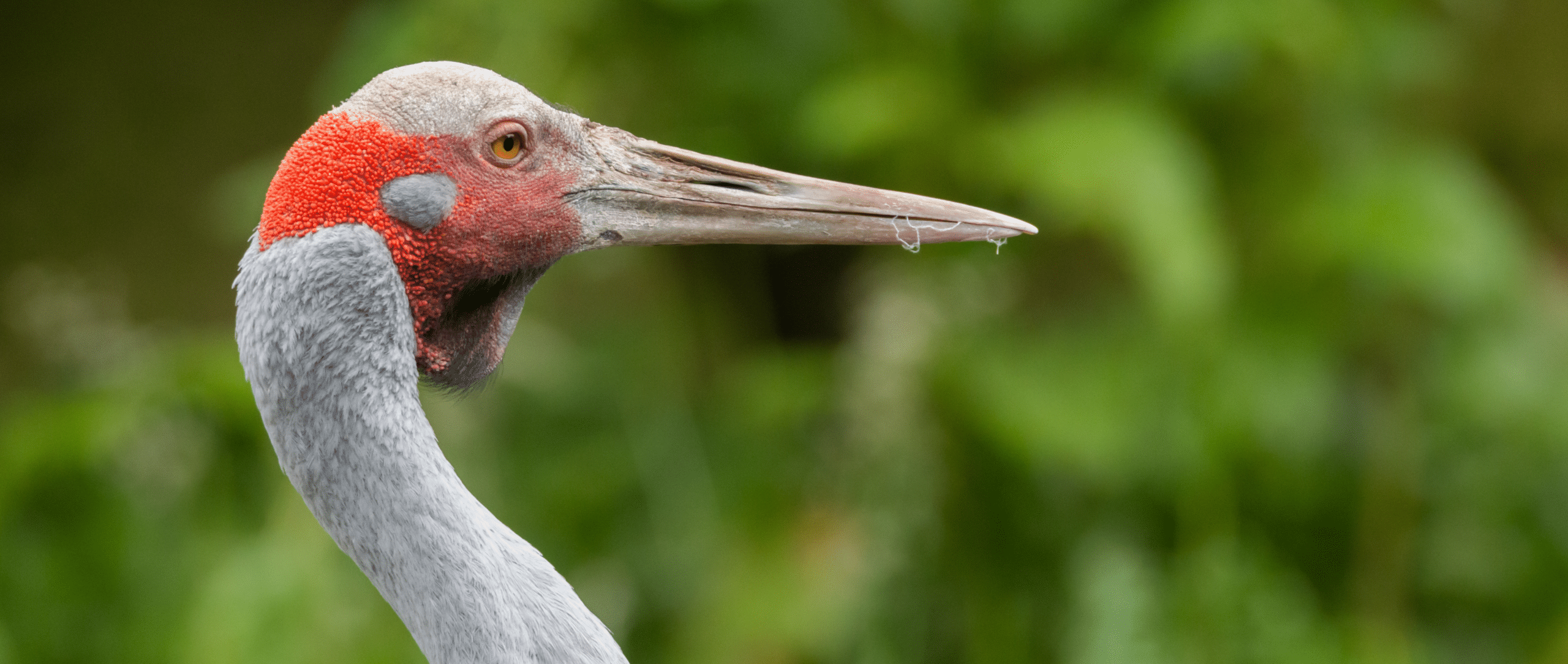SYDNEY (January 27, 2026)—Humane World for Animals Australia is deeply saddened by the Queensland Government’s decision to kill a pack of six dingoes on K’gari over the Australia Day long weekend. News of the government’s actions was announced in a media release from the Minister for the Environment and Tourism’s office on Sunday, following the tragic death of Canadian tourist Piper James last week. Humane World for Animals...
Humane Society International (HSI) Australia and Australian Marine Conservation Society (AMCS) have analysed the death toll of Queensland’s lethal shark culling program from 2023.
Their analysis of Queensland’s Shark Control Program data found that in total 722 marine animals were either killed or found dead after being drowned in the nets or hooked on the lethal drumlines between 1 January and 31 December, 2023. Some of the non-target victims include dugongs, dolphins, turtles and manta rays. Of the 614 non-target animals caught, only 30% were released alive.
This analysis follows the release of footage last week of a tiger shark being stabbed by Queensland Shark Control Program contractors, shining a light on the killing methods of the program.
Non-target species caught in Queensland shark nets and on drumlines in 2023:
- 2 dugongs caught and found dead off Noosa Main Beach and Alexandra Headland
- 12 dolphins caught, with 9 found dead
- 38 turtles caught, with 5 found dead
- 11 humpback whales caught
- 82 animals caught were protected wildlife*, with 29 found dead
Even for those animals that are released, their survival is not guaranteed after hours spent stressed and exhausted in the nets and on drumlines.
HSI Australia and AMCS are urging the Queensland Government to end the Shark Control Program and focus on modern strategies to protect swimmers.
Lawrence Chlebeck, Marine Biologist at HSI Australia, said: “These figures tell a story of a depressing disregard for our precious marine wildlife. How can we continue to let dugongs, dolphins and turtles suffer and die each year off Queensland beaches, and even in the Great Barrier Reef?
“This data tells us plain and simple – nets and drumlines don’t discriminate. These wildlife death traps have a kill rate of 70% for non-target animals.
“We saw the footage last week of the tiger shark being brutally killed. Now we know that this scene may have replayed up to 322 times in 2023 – once for every target shark caught in South East Queensland, if it survived the initial entanglement or hooking. Thankfully, target sharks are spared this fate in the Great Barrier Reef thanks to a successful court challenge by HSI in 2019.
“Shark incidents are rare, and this program doesn’t stop them from happening. Almost half of sharks (40%) are caught in the nets on their way out from the beach. Additionally, by trapping wildlife right off beaches, the nets could even be attracting sharks closer inshore.”
Dr Leonardo Guida, shark scientist at AMCS, said: “Queensland must modernise its 62-year-old beach safety standards to improve the safety of humans and wildlife alike. Nobody would accept 62-year-old safety standards at home, work or school, and the beach should be no different.
“Queensland has the solutions in hand – comprehensive education programs, drones as invaluable eyes on the water, tagging and tracking sharks – all of which demonstrate the culling component of the program is redundant.”
Queensland’s Shark Control Program comprises 27 nets and 383 traditional lethal drumlines installed off the state’s beaches, all of which are deployed year-round, including during whale migration season. Baited drumlines are even installed in the World Heritage-listed Great Barrier Reef.
Over the past decade (from 1 January 2014 until 31 December 2023), Queensland shark nets and drumlines have captured 7,808 unintended non-target animals, including 734 protected animals. In the last 10 years, we have seen the death of the following non-target species:
- 15 Critically Endangered grey nurse sharks
- 92 dolphins, including 6 Vulnerable humpback dolphins
- 2 whales, a humpback in 2017 at Kurrawa Beach, and a minke in 2014 at Bilinga Beach.**
- 75 threatened turtles
- 8 dugongs
- 273 rays, including 27 manta rays
Modern, non-lethal solutions such as drone surveillance, alert systems, personal shark deterrents, and Shark Smart behaviour are much more effective at keeping people safe without the cost to wildlife. HSI Australia and AMCS are calling on the Queensland Government to fully implement modern, non-lethal protection strategies and to retire outdated and cruel culling in the shark control program.
ENDS
Media contact: Hannah Clayton | 0434 269 048 | hclayton@hsi.org.au
All statistics were gathered from QFish.
*Our definition for protected wildlife covers all animals listed under Australia’s EPBC Act
**Although 2 whales were found dead over this period, a total of 75 were caught. These animals are most often entangled during their migration, so although they were released there is no guarantee of survival as the intense stress and exhaustion severely impacts their journey ahead.


